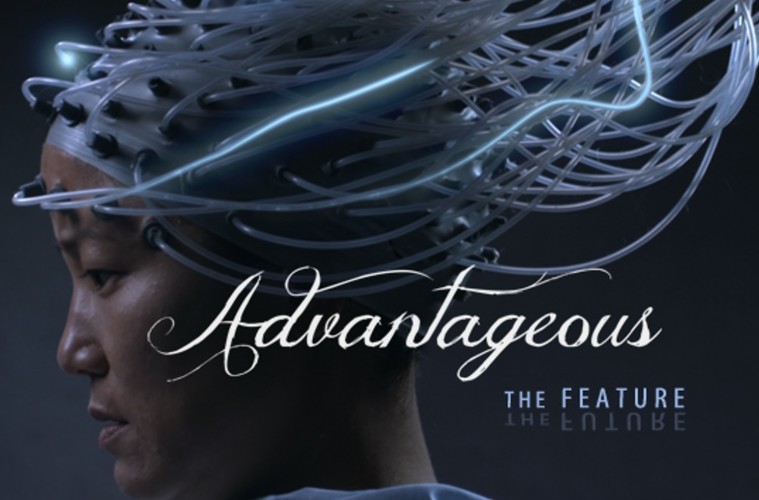Imagine a world where the labor market is unimaginably competitive. Jobs are scarce, the fetishization of youth is at an all-time high, and technology has advanced so quickly that you can barely tell the difference between human beings and sentient computers. Regardless, only the wealthiest humans can afford to contend with their increasing obsolescence. How would you survive? How would family life look?
This is the starting point for one of this year’s most compelling installments in the contemporary dystopian sci-fi canon. Similar in tone to Emily St-John Mandel’s gentle yet powerful Station Eleven and in subject matter to Margaret Atwood’s classic The Handmaid’s Tale, Advantageous (directed by Jennifer Phang) is bathed in lush, minimal aesthetics that don’t dwell as much on the science as the tense relations between the characters. And as the female-authored literary references allude, it’s one of those rare science fiction movies written, directed, and starred by women. The indie film, which was released this summer, tackles these very basic questions of survival, family, and the essence of being human through the lens of a single mother, Gwen (Jacqueline Kim), and her relationship with her young daughter Jules (Samantha Kim).
Gwen works as the “face” of the Center For Advanced Health and Living, a company selling cutting edge procedures that help clients keep up with the daunting demand for a perpetually young and able-bodied workforce, but her career suddenly halts when she is unceremoniously dismissed over her advancing age. The firing couldn’t come at a worse time, when Jules has just been accepted into a prestigious school, and tuition is coming due. Gwen fruitlessly cycles through her limited choices, only to discover that the decision has been made for her by her former employer: to undergo an experimental procedure that ensures the continuation of her position—and financial security for Jules’ future.
When you see the story on paper, it doesn’t seem so far-fetched. When I first heard about the film, before seeing its premiere at the Brooklyn Academy of Music this summer, it reminded me a bit of the controversial business of fertility treatments, often invisibly supplied by (typically) young, educated, healthy, and attractive women who “donate” their eggs. The implied altruism of the donation cycle is often deceptively simple, masking the unknowns of long-term health consequences with a warm and fuzzy veil of a lady’s good turn to earnest would-be parents. Donors walk away with a fee; couples walk away with the donors’ eggs. It’s a fairy tale with a transactional dark underbelly. The procedure in Advantageous reads like a fairy tale, too: “The experience is akin to a seamless jump into a brand new body, circumventing the extensive recovery period of invasive cosmetic surgery… Imagine living forty years with a clubfoot. But on your 50th birthday, you’re a professional ballet dancer.” Gwen makes this speech in front of a live audience in the aftermath of her procedure, attesting to the procedure’s success as a “satisfied test subject.” But it’s the substance of the unknowns that make this film as good as it is, a quiet, deft inquiry into the unsettling relations between technology and capitalism.
There are a good number of reasons to add Advantageous to your Netflix queue: passing the Bechdel test, giving some much-needed love to women of color in film, seeing Ken Jeong in a dramatic role, seeing how a great sci-fi film can be done on a shoestring budget, the score, and the gorgeous use of color throughout. Ultimately, though, it’s the performance of Samantha Kim who quietly carries the film, though this isn’t quite apparent until the final third, when Gwen has (arguably) come through the procedure. Without giving too much away, I found this climax—and its aftermath—to be the most challenging and poignant moments of the story, effectively sweeping away the more science-fiction elements and bringing the focus back to the corporeal, the human. Kim, in these moments, delivers us to the film’s conclusion, reconstructing her family that the world tried to destroy. What she leaves us with—a green-tinted scene of a languid picnic in the park—fills us with equal parts melancholy and hope, a wordless response to Gwen’s imploring early in the film, “There must be something in a mere human existence that has value.” There is.
Image via reappropriate.co


